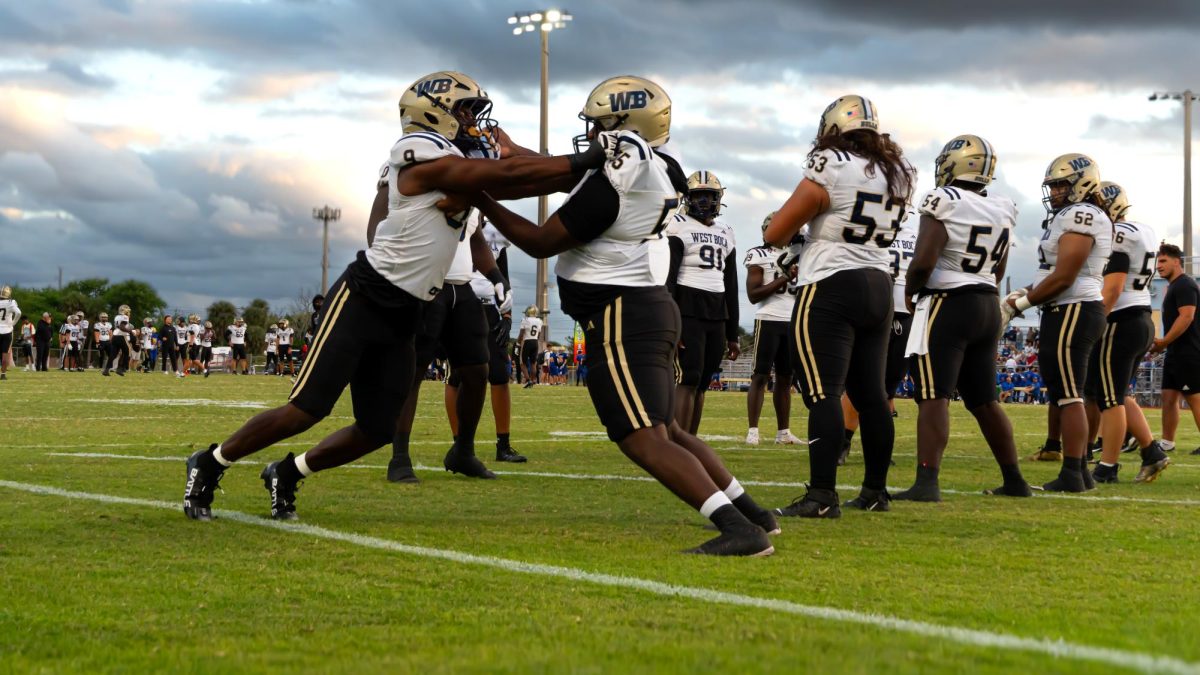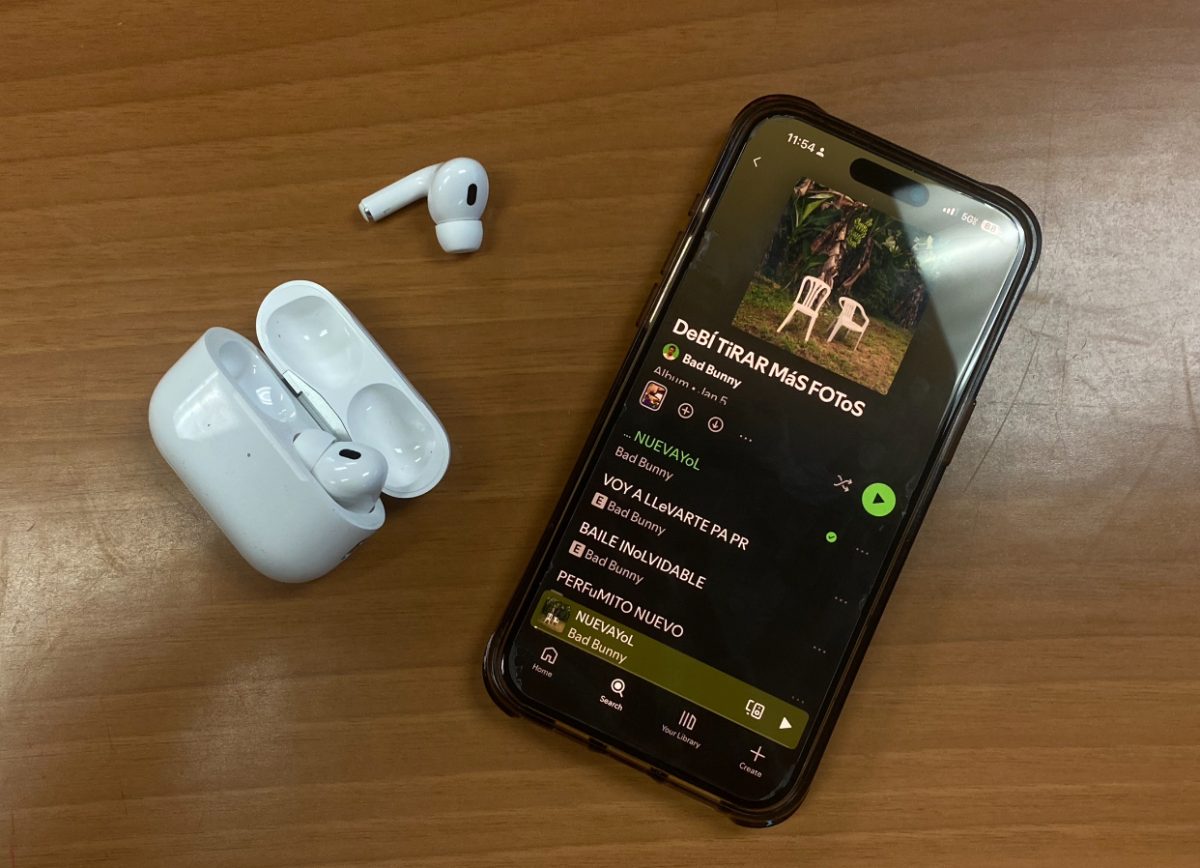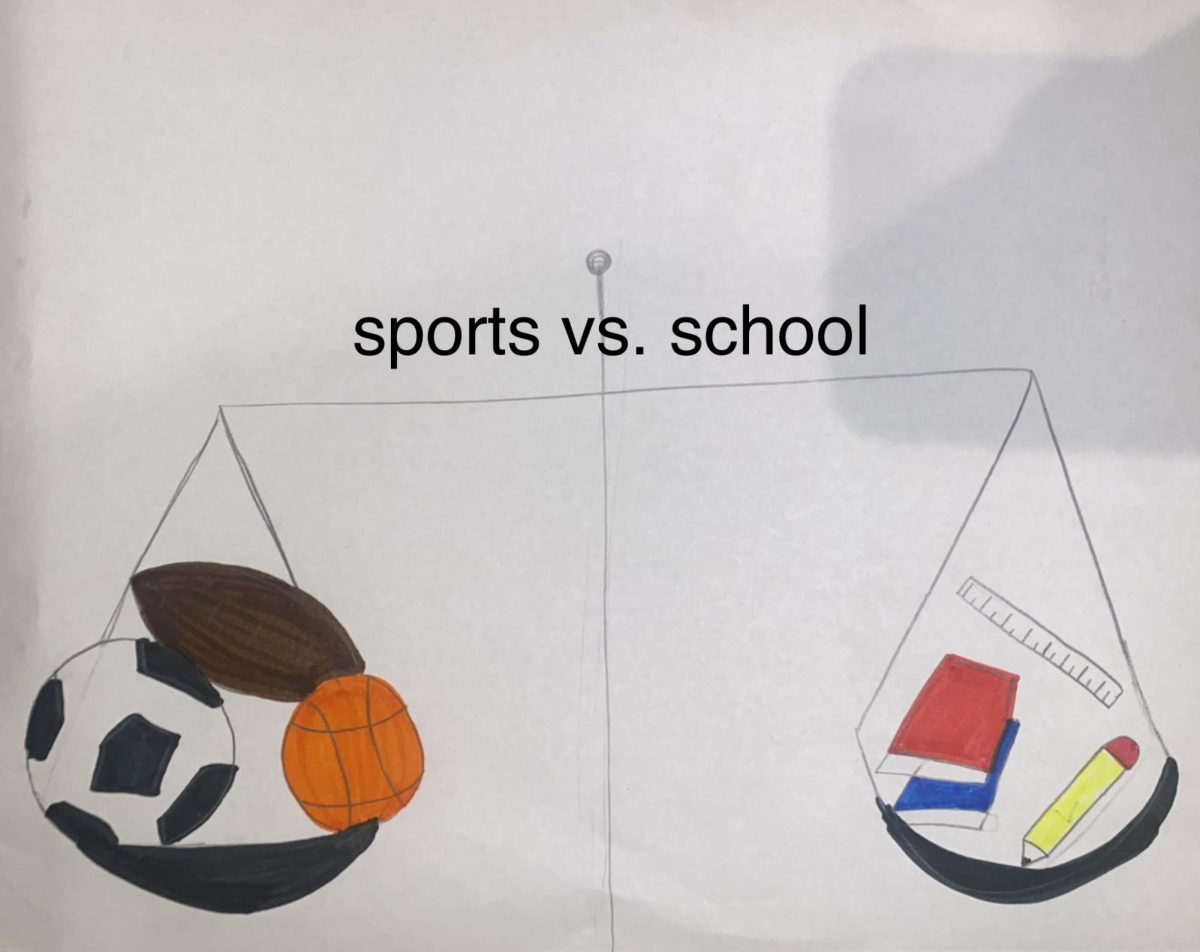Playing sports during highschool can be beneficial to students in numerous ways. Not only does it keep students physically active, but it also builds character and lifelong skills. Participating in sports instills character traits such as dedication, sportsmanship, resilience, and perseverance. It also helps to improve cognitive function which can be very useful in the classroom. By improving students’ physical and mental health, while improving cognitive functions, sports can be very beneficial when it comes to academics.
Engaging in sports enhances students’ physical health by contributing to their cardiovascular health, muscle development, and keeping them in shape. This regular activity helps to maintain a healthy weight, strengthen bones, and instills lifelong habits that will contribute to a healthier, more active lifestyle. It also implants these habits of physical activity which can reduce the risk of chronic illnesses such as heart disease and obesity.This keeps students healthy and overall benefits their physical well-being, not only now but also for the rest of their lives. According to Mayo Clinic sports are meditation. Mayo Clinic staff says, After a fast-paced game of racquetball, a long walk or run, or several laps in the pool, you may often find that you’ve forgotten the day’s irritations and concentrated only on your body’s movements. This means that playing sports can be an outlet to let out any tensions from your daily life. Overtime, releasing this tension, can help students focus and remain stress free which then benefits their performance in school.
Beyond keeping students just physically healthy, playing sports also contributes to enhancing their mental health. Regularly participating in sports can act as stress relief which can aid students in managing their work. According to Mayo Clinic, physical activity releases endorphins which are brain hormones that when released naturally enhance your mood while reducing stress and anxiety. Sports have also been proven to enhance cognitive function. Cognitive functions include perception, memory, decision making, attention span, learning, and language abilities. The focus and concentration that is needed during sports helps to improve the mind which can then help academic performance. According to Annie Lennon, writer at Medical News Today, Researchers have recently “found that chemical signals from contracting muscle cells caused hippocampal cells to grow and fire more electrical signals. They also found that support cells known as astrocytes regulate neuronal growth and activity for optimum brain function.” This means that by playing sports muscles are contracting that release chemical signals increasing neuronal growth.
Academic performance is another area that is positively impacted by playing sports. GIven that regular participation in sports improves cognitive function, this then influences academic performance.Since physical activity can lead to improved memory , increased attention span, and heightened concentration, it also helps students to do better in the classroom, since these traits go hand and hand with learning. Studies have shown that students who participate in sports demonstrate better problem solving skills. Research also shows that these student athletes have a greater ability to retain information. These benefits can greatly enhance a student’s academic success. The discipline aspect of sports also contributes to academic performance. Athletes develop a strong work ethic learning that they need to value alue effort and consistency.
Not only do sports benefit students physically but they also implant values such as sportsmanship, resilience, and perseverance, which contribute to the overall character development of students. The extent of these benefits can vary depending on the athlete’s individual experiences. Factors that can affect an athlete’s experience are the coaching environment, the sport, the teammates, and overall the students level of involvement and commitment to the sport. Being a part of a team also allows for students to demonstrate leadership. Taking on the role of a captain can teach students important skills on how to motivate and guide others. It shows dedication and work ethic which can be beneficial in the long run. According to NATA ( National Athletic Trainers Organization), “High school students, especially female students, who play sports are less likely to drop out.” According to statistics, physically active children are 15% more likely to attend college and former student athletes tend to earn significantly higher incomes, proving that staying active in sports benefits students.
Participating in sports also provides a dynamic platform for students to cultivate crucial life skills. These skills include but are not limited to teamwork, collaboration, communication, and interpersonal skills. By increasing self esteem, being a part of a sports team also improves students social skills. Team sports implement teamwork skills by teaching the athletes to rely on and help out each other. These skills are also helpful to have when students are working on a group project or classroom discussion. By doing so athletes are able to learn from their teammates while also teaching them. This necessary skill of teamwork gives students diverse perspectives and feedback on problem solving. This skill can be beneficial to students later on in life when they are faced with a problem or even in the workplace. Teamwork goes hand in hand with the collaboration and communication skills which are just as important. Communication is a vital skill that allows for effective interactions and understandings in various situations. Knowing how to proficiently communicate with others can help build successful relationships, personally and professionally. It can also help with business and future jobs.
Overall, playing sports during highschool greatly impacts students by instilling necessary lifelong skills. Not only does playing sports keep students physically healthy and active, but it also benefits their academics. By improving their cognitive function, students are able to obtain better focus, memory and better their language abilities. The positive impact sports have on mental health also contributes to students’ abilities to perform in school. The skills instilled by sports included sportsmanship, resilience, and perseverance, which are all beneficial to their school performance. Being committed to a sports team also instills dedication, which teaches the students work ethic. Being able to be a part of a team and learning how to work together is also very beneficial to students’ success. Not only does playing sports help students in school, but it also helps them after. The skills learned from playing can be carried on and continue to benefit you through the rest of your life.














































